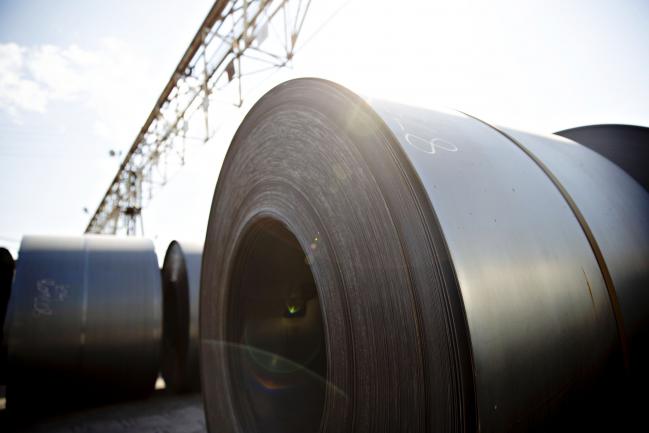(Bloomberg) -- U.S. tariffs on steel could be replaced by quotas for Canada and Mexico, the head of the largest U.S. steelmaker says.
The U.S., Canada and Mexico are preparing to sign their new trade deal late next month, despite an ongoing tariff fight -- U.S. levies on the other countries’ steel and aluminum imports remain in effect, as do Canadian and Mexican retaliatory tariffs.
John Ferriola, chief executive officer of Nucor Corp (NYSE:NUE)., said during an earnings call with analysts on Thursday that quotas of some kind may replace tariffs for Canada, Mexico and other countries.
“At the end of the day, we think that there will and could very well be some changes to tariffs versus quotas, not only within Nafta but other countries,” Ferriola said. “But what we believe is that the tariffs are achieving their primary objective.”
The countries have reached a deal to update the North American Free Trade Agreement, which will be renamed the U.S.-Mexico-Canada Agreement. They aim to sign it on Nov. 30 before incoming Mexican President Andres Manuel Lopez Obrador takes office.
Tariff Hurdle
Some in Mexico are suggesting that the USMCA may not proceed without a steel and aluminum tariff deal. Jesus Seade, who represented Lopez Obrador, said in an interview that Mexico shouldn’t sign the deal until the tariffs are removed, according to Mexico’s Reforma newspaper. Mexico’s outgoing economy minister, Ildefonso Guajardo, has said he expects the issue to be resolved before the deal is signed at the end of November.
Canada, meanwhile, has sought to distance the USMCA deadlines from talks over the steel and aluminum tariffs. Foreign Minister Chrystia Freeland has said Canada will drop its retaliatory tariffs once the U.S. drops its own. “We have taken strong responsive measures to defend our workers and our industry, including measured, dollar-for-dollar tariffs,” spokesman Adam Austen said Thursday. “The best outcome for both countries would be for the U.S. to rescind their tariffs."
Former Canadian Prime Minister Brian Mulroney, who negotiated the first Nafta deal and has acted as an informal Canadian envoy with the Trump administration, said he thought the steel and aluminum dispute would be dealt with soon.
"I wasn’t surprised to see that was not included in the final deal,” Mulroney said on the sidelines of a Canaccord Genuity cannabis conference in Toronto. “My expectation, however, is that given the importance of the deal and the satisfaction of all three parties led by the Americans with the renewed Nafta deal, that this matter will be resolved to Canada’s satisfaction probably in the relatively near future.”
